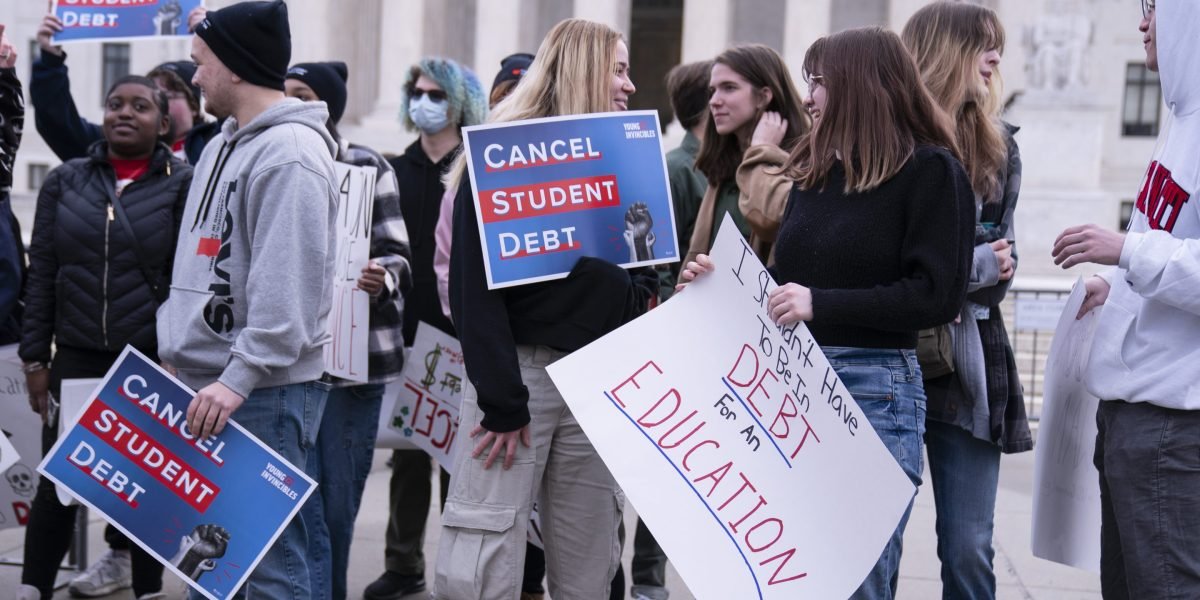Millions of Americans face a hit of at least $500 a month to their household budgets from the restart of federal student loan payments in September, according to a new study by TransUnion.
The credit reporting agency examined the impact on some 27 million student-debt holders who are due to start paying again in September, after a pandemic freeze that lasted more than three years. For many who graduated since 2020, it’ll be the first time they’ve ever had to make the payments.
For about half of the affected student-debt holders, the monthly payment will be above $200 a month, while for about one in five it will be more than $500, the report found. “Borrowers will experience a payment shock as they attempt to recalibrate their monthly budgets to accommodate this new payment,” TransUnion said.
The student-debt restart is another headwind for US consumers, whose resilient spending has helped keep the economy expanding even after more than a year of interest-rate increases by the Federal Reserve.
Compounding the strain, many of the student-loan borrowers have taken on other kinds of debt during the pandemic, likely at a higher cost as rates went up, the TransUnion study found.
Those additional debts “may pose added challenges for households attempting to reintegrate student loan payments into their monthly budget,” said Liz Pagel, head of TransUnion’s consumer lending business. “It’s important for both lenders and consumers to be prepared for this new payment shock.”
Older borrowers, many who have taken on debt to pay for the education of their children, tend to have larger student loan debts and bigger monthly payments.
The Biden administration’s effort to ease the debt burden for some borrowers with loan forgiveness was blocked by the Supreme Court last month. After that ruling, the White House announced a 12-month program to cushion the blow of payment resumption.
Through the end of September 2024, borrowers who fail to make monthly payments will not be considered delinquent, and the missed installment will not be reported to credit bureaus, placed in default or referred to debt collection agencies, although interest will continue to accrue.





